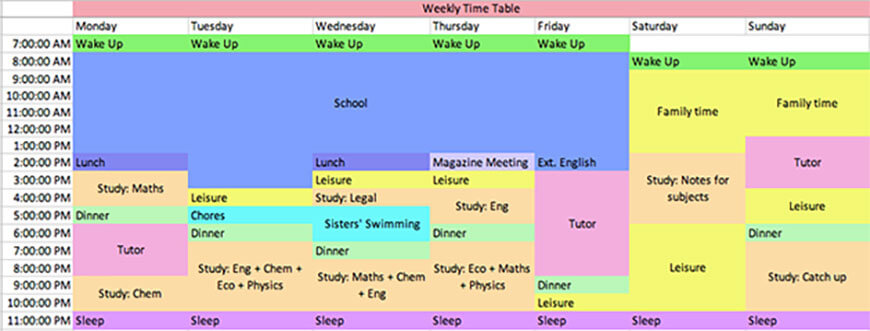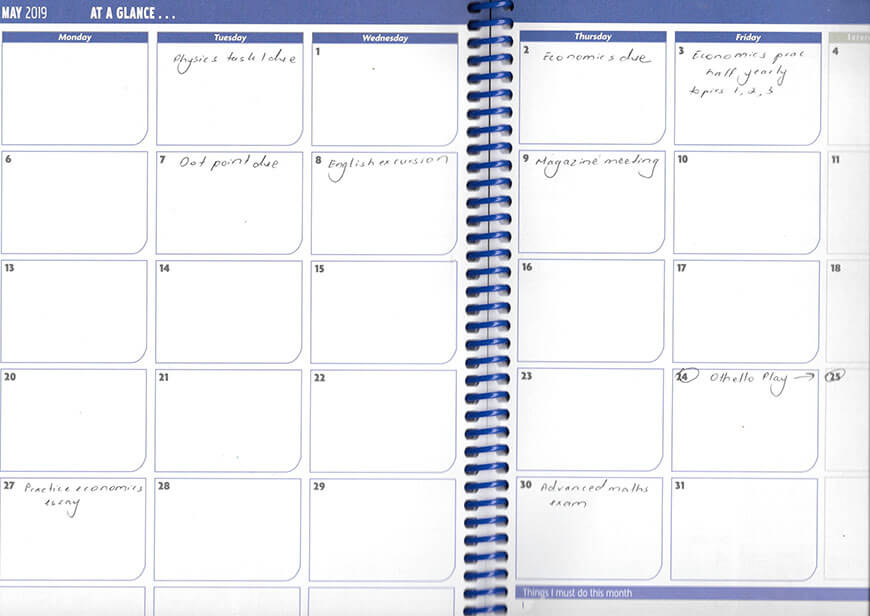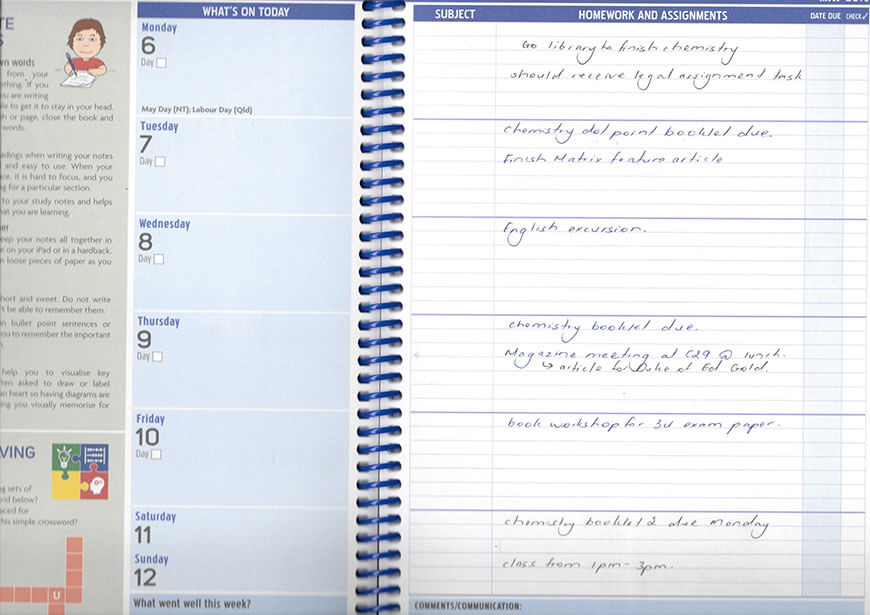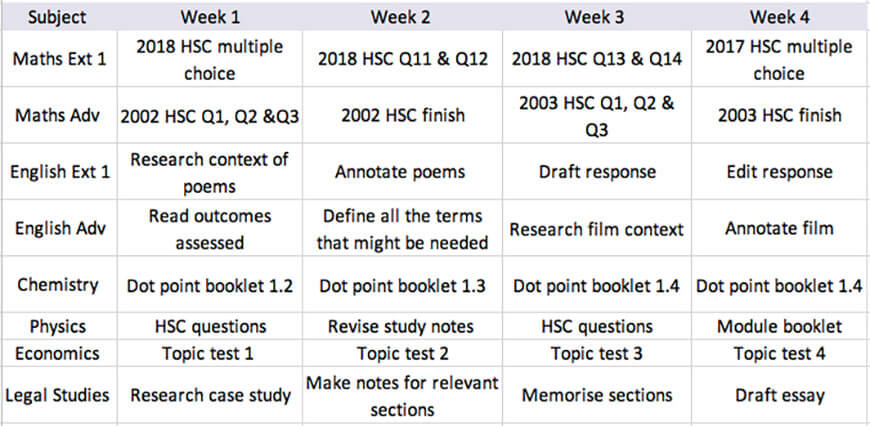Welcome to Matrix Education
To ensure we are showing you the most relevant content, please select your location below.
Select a year to see courses
Learn online or on-campus during the term or school holidays
Learn online or on-campus during the term or school holidays
Learn online or on-campus during the term or school holidays
Learn online or on-campus during the term or school holidays
Learn online or on-campus during the term or school holidays
Learn online or on-campus during the term or school holidays
Learn online or on-campus during the term or school holidays
Get HSC exam ready in just a week
Select a year to see available courses
Science guides to help you get ahead
Science guides to help you get ahead
Ever been disappointed by bad results? Thought about quitting? Jessy didn't! In this article, she shares how she flipped disappointment into success.

Join 75,893 students who already have a head start.
"*" indicates required fields

Join 8000+ students each term who already have a head start for English, Maths, OC/Selective Prep, Science, Biology, Chemistry or Physics.
Jessy was the recipient of the Harding Miller Education Foundation scholarship in 2017 and 2019, as well as the sole recipient of the Malala Yousafzai scholarship from the Public Education Foundation in 2017. In this post, she explains why a set back inspired her to reorganise her study and how to flip disappointment into success.
Jessy Le
Westfields Sports High School (Selective School ≠ Success)
Year 11
97+
At this point in time, my best subject is English.
Going into year 11, I was afraid I would not be able to compete with others since English is a compulsory subject, making the competition fierce. However, my results in both Advanced and Extension 1 English have proven otherwise.
Although English has never been my favourite subject, I am performing better in it than any other subject. I have also started to appreciate it more, which makes classes enjoyable, unlike in previous years.
Although I have not received my mark back for Economics, I believe it is my worst subject at this point in time.
I chose Economics over Business Studies because a friend had said that it was fun and that she was enjoying it, and I thought I would enjoy it too.
This shows that you should never choose a subject based on someone else’s opinion and should only choose it if you are interested.
Although I don’t feel like I am doing well in the subject, I actively ask for clarification on the work and am seeking to improve my results and understanding.
My biggest regret would be not applying these time management skills earlier. Due to this, I was not able to achieve to my full potential for my HSC exam as an accelerated student in year 10. Throughout that year, I was not disciplined enough with my studies and was careless with it.
I skipped quite a bit of revision and did not study beyond the set tasks, resulting in a mark that is below my capacity.
| I regret that I was not disciplined enough for my HSC subject in Year 10 | ||||
| Subject | Assessment Mark | HSC Exam Mark | HSC Mark | Performance Band |
| Mathematics 2 | 82/100 | 88/100 | 85 | 5 |
Receiving my HSC mark that morning made me realise that I had been too negligent with my studies. I knew then that I needed to pick myself back up if I wanted to perform to the best of my abilities. Luckily, being an accelerated student gave me the advantage of having the time to flip things around.
Matrix has helped tens of thousands of students turn nightmare results into their HSC success story. Try a free trial lesson and learn how we can help you flip your future!
Learn more about our Year 11 Maths Ext 1 Term Course.
Try Matrix for free!
Experience the Matrix advantage for yourself, risk-free. Book a free trial and join a class!
14 units is a lot of work and it is definitely hard to handle, especially with all the extra-curricular activities I participate in.
However, attempting 14 units allows me to immerse myself in a wide range of subjects. I can also keep my options available for once I decide my future aspirations. I have decided to maintain 14 units for year 11 because I am unsure of which subjects I can excel in and want to keep my options until after preliminary exams.
For year 12, I will drop a subject and keep 12 units, with the extra 2 units as my backup.
I would highly recommend for anyone wanting to do 14 units in year 11 to see how they are balancing life with all their subjects first. Never put yourself in a position that would stress you out too much, as this will consequently affect your studies.
My extracurricular activities include:
As someone who has always strived to be an all rounded person, I have applied myself to a variety of extra-curricular activities both inside and outside of school. In doing so, I have gained an array of “real-life” skills that academic studies alone cannot provide.
Some of the skills that I have developed include:
Although extra-curricular activities have their endless benefits, trying to juggle them, along with 14 units, is quite difficult if a system is not put into place. With the limited study time I have, I learnt that it must be used efficiently to successfully excel in all areas of my life.
Having a timetable is one of the best ways to organise and manage your time efficiently. It helps in prioritising the things that are of urgency or importance, finding time, reducing work and actually completing the work.
To effectively create a weekly planner that you will follow, always put in the time for leisure. This way, you will be more willing to start, knowing that your leisure is not sacrificed.
Your study time does not need to specify which subjects you are studying for, but rather guide you to study for all subjects without neglecting any.
For my timetable, I chose to study certain subjects on certain days because I would like to revise and review what has been taught in class that day. If there are tasks for other subjects that also need to be completed, I would strive to complete it the day that I receive it to ensure that it is not started last minute.
So when you set up your timetable, try to have study block for a subject that corresponds with day you have the class. For example, if you have double English on Thursday, have an English Study block on Thursday!
Here is my weekly timetable as an example:

Your daily planner is your most important book for the year.
A daily planner allows you to keep track of all your work, focus on the important activities, increase productivity and consequently lower stress levels. This ensures that you do not miss any work and are aware of when your due dates are.
I personally always carry the diary distributed by school, because it has all important dates already marked in, as well as a convenient month and weekly planner.
This is what my planner looks like.


One thing that I have learnt from balancing extra-curricular and academics, is that focusing on and completing the more demanding and important tasks first is the way to go. It allows you to spend more time on the right things and ensures that deadlines are met, reducing stress.
However, I had discovered that you should not prioritise homework, but rather, non-required tasks. These non-required tasks are what separates high achieving students from the rest. They include work like doing past papers, writing notes during the term and extra reading.
When sorting my priorities, I choose to do certain tasks in certain weeks to prepare myself for the exam in an organised manner. I try to plan things so the tasks gradually increase in difficulty, allowing me to have a sufficient amount of practice before examinations.
I strive to enter the exam room with confidence to do well and perform to the best of my abilities.
By preparing myself weeks before the exam, I would have understood the content back to front.
This is how I would prioritise getting ahead.

It is ideal to complete 15-30 minutes of these tasks first before starting your homework and assignments. This ensures that you are not leaving your studying until exam time and that you have time to improve on your weaknesses.
Study notes are easy and effective ways to study. Writing study notes is a great way to review the content as you go, as well as being an efficient way of preparing yourself for studying for exams.
A lot of students make the mistake of writing study notes the night before the exam. This is ineffective and horrible for your studies in the long term, as you will only get a superficial understanding of the content and you’re not consistently applying yourself to the best of your abilities.
Let’s look at my process for putting together study notes at the end of each day.
I usually spend 15 to 20 minutes everyday writing study notes for each subject. I have learned that it is best to write out anything that you are not entirely confident with and to include examples or anything that you associate to it.
I would start off by reading through the content. Before writing your notes, it is best to read through the content and have a deep understanding of it. This ensures that you are able to write the notes in your own words and put it to good use before exams.
I have found it is far more effective to change the content into your own words and write notes that help you understand the content better. Paraphrasing and forcing yourself to find synonyms helps you learn content more effectively.
I then make a list of “subheadings” or trigger words and base my notes off these. These add hierarchy which makes it easier to learn and recall the content.
Your notes do not need to be extremely long and do not need to be in full sentences.
I then highlight my notes, but not too much.
One thing that you must be careful of is excessive highlighting.
It is best to have an idea of what you want to highlight before picking up the highlighter. I would usually highlight trigger words or phrases that help me recall the content and formulas.
Now you’ve got great notes for you to review and study from.
Here are some examples of my notes:
Try to follow your study timetable and use your diary as much as you can.
Proper Planning Prevents Poor Performance!
Write summary notes for all your subjects as you go and do not leave it last minute. This will prove beneficial.
Use your time efficiently and revise on the topics you are not confident with before moving on.
Do not rely on textbooks alone and be sure to ask your teachers anything you do not understand. Recreate the exam environment and test yourself in preparation.
There is a proven link between what we eat and how well our brains function. Memory, learning ability, energy levels and emotional states are all affected by diet. Eating also brings happiness, so make sure to choose healthy study snacks!
Procrastination is your worst enemy. It is important to rid yourself of any potential disruptions before beginning work.
Often, starting is the hardest part.
To overcome this, try setting a timer for 3 minutes and within these 3 minutes, you must be doing whatever work you need to complete. Once the timer is up, you can stop if you want to. However, by the time 3 minutes is over, you are already started and will most likely to continue.
Cramming is an ineffective way to prepare for a test and will only lead to more stress. It will consequently result in disappointing performances.
To get the most out of studying, you should study in small increments throughout the year and leading up to the exam to get the best understanding of the content.
Do not study to the point where you can’t think straight.
If you are experiencing headaches, nausea, blurriness or plain exhaustion, you are no longer absorbing any information and it would be best to sleep.
If you continue, you are jeopardizing your ability to think clearly during the exam.
Boost your Maths Ext 1 marks!
Expert teachers, comprehensive resources, one-to-one help! Ace your next assessment with Matrix+ Online.
Written by Guest Author
We have regular contributions to our blog from our Tutor Team and high performing Matrix Students. Come back regularly for these guest posts to learn their study hacks and insights!© Matrix Education and www.matrix.edu.au, 2023. Unauthorised use and/or duplication of this material without express and written permission from this site’s author and/or owner is strictly prohibited. Excerpts and links may be used, provided that full and clear credit is given to Matrix Education and www.matrix.edu.au with appropriate and specific direction to the original content.